What makes a slight skin prick, administered by a small flying insect, turn into a life-threatening emergency?

Every entomologist will have been asked: “What is the point of wasps?” But, really, the key biological question is: “What is the point of stings?” That is, why is it that some stings seem more acceptable to us than others? And why is it that some stings really, really hurt?
Wasps sting, but because wasps are, shall we say, ‘under-appreciated’, the sting in the tail has grown in the telling. Wasps are small insects, yet are exaggerated into monsters of phantasmagorical proportions. However, this is a fear based in ignorance. In reality, there are no such things as monsters.
Bees sting too but engender far less fear. Bumblebees are just too cuddly for words anyway, while honeybees are lauded for their earnest and diligent industry, and the production of that quasi-magical stuff called honey. Until recently, bees were also held up as a shining natural example of a social structure where food and shelter, community and safety were seen as the just rewards for a proletariat worker class overseen by a ruling aristocratic elite. Wasps, on the other hand, have been derided since the time of the Greek writer Plutarch, who suggested they were degenerate bees, unable or unwilling to keep up with the morally virtuous hive work ethic.
Wasps have a serious public relations problem. It’s only by considering why they (and bees) have evolved such formidable stings that we can begin to truly understand their nature, how they fit into the natural world, and why they need not be demonised.
Esta historia es de la edición August 2019 de BBC Wildlife.
Comience su prueba gratuita de Magzter GOLD de 7 días para acceder a miles de historias premium seleccionadas y a más de 8500 revistas y periódicos.
Ya eres suscriptor ? Conectar
Esta historia es de la edición August 2019 de BBC Wildlife.
Comience su prueba gratuita de Magzter GOLD de 7 días para acceder a miles de historias premium seleccionadas y a más de 8500 revistas y periódicos.
Ya eres suscriptor? Conectar
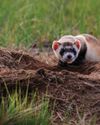
Does cloning create identical copies?
EMBRYOS ARE MADE OF STEM CELLS that divide to give rise to different types of cells, everything from skin to brain cells. Scientists once thought that reproductive cloning creating a genetically identical copy of an individual organism - would be impossible without using stem cells and that the path leading to mature 'differentiated' cells was irreversible. But clawed frogs proved them wrong...
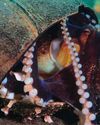
Tool-using animals
Our pick of 10 species that exhibit this special skill

Mission Blue
Sylvia Earle has dedicated her life to marine conservation; she tells BBC Wildlife why protecting the ocean is essential to all life on earth

RESHARK
The world's first shark rewilding initiative has seen zebra sharks released in the waters of Indonesia's Raja Ampat archipelago
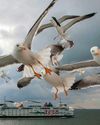
ON DECK
Ferries aren't just for transport, they're also perfect vessels for conservation
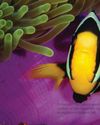
IT'S A COLOURFUL LIFE
Delve into the unique and complex biology of the clownfish, arguably the world's most famous fish
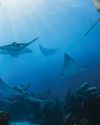
BAHAMAS BENEATH
A dive into the waters of this famous island nation with the creatures that call it home

"To save the reef, we need everybody involved"
Indigenous peoples may hold the key to protecting the Great Barrier Reef
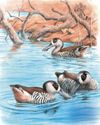
SPINNING AROUND
Going around in circles proves fruitful for this filter-feeder
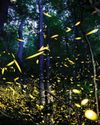
BLINDED BY THE LIGHT
On balmy evenings, amorous beetles put on a spellbinding show in North American forests